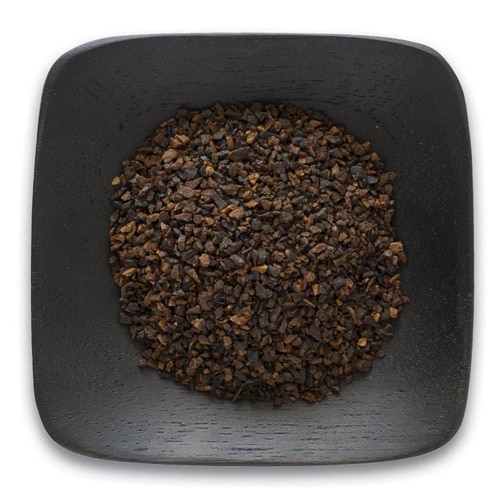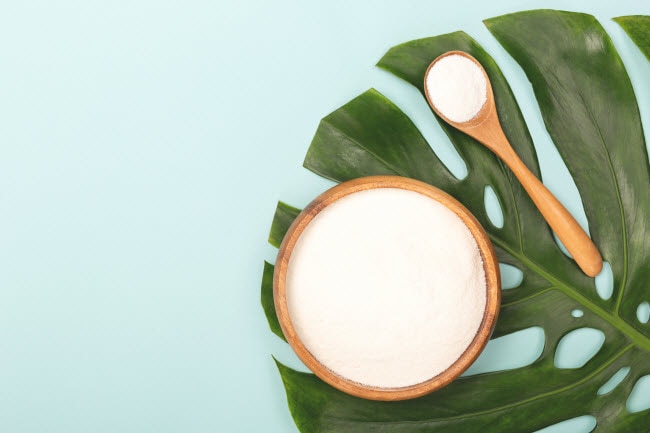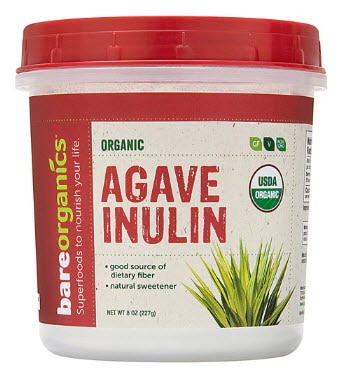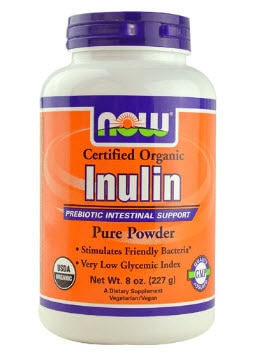Gut health is a hot topic right now, and for good reason—what happens in your gut is key to your overall health and well being. There’s a lot of talk about the benefits of probiotics, but their counterpart, prebiotics (which supply the food for probiotic bacteria), are just as important. One common type of prebiotic is inulin, and more people are beginning to add this to their supplement routine after discovering the benefits. Here’s what you need to know.
What is inulin?
Inulin is a soluble fiber found in plant foods. This means it attracts water and turns to gel as it breaks down in the body, slowing down digestion. Healthy foods contain both soluble and insoluble fiber, which are both beneficial for health, says Randy Evans, a registered dietitian and consultant for Fresh n’ Lean meal delivery service.
“We are only beginning to understand the many influences our microflora has on our health via interactions with digestion, absorption, metabolism and immune functions,” says Evans. Natural food fibers such as inulin are called prebiotics because they are a food source for the healthy bacteria that live in our bodies. As these fibers make their way through the GI tract, bacteria digest the fiber by fermentation, releasing short-chain fatty acids that bacteria can use for energy, adds Evans.
What are some inulin benefits?
Because inulin dissolves in water and forms a gel during digestion, it helps promote regular bowel movements, and is therefore helpful for relieving constipation, says Diana Gariglio-Clelland, a registered dietitian and consultant for Balance One Supplements.
However, inulin is also key in promoting overall digestive health. “Good bacteria provide many health benefits, and inulin stimulates these bacteria to grow,” says Brocha Soloff, a registered dietitian and founder of iHeart Health. Inulin aids digestion by increasing the number of good bacteria in the gut, particularly bifidobacteria and lactobacilli, she adds.
Higher intakes of dietary fiber overall are linked to less cardiovascular disease, as well as lower body weight and weight loss, says Joanne Slavin, PhD, RD, a food science and nutrition professor at University of Minnesota who studies the health benefits of fiber and prebiotics. One reason for this is that fiber helps keep you feeling full longer, leading to fewer cravings. In addition, Slavin says inulin can increase absorption of calcium, a nutrient vital to bone health.
What are the best inulin foods?
Bananas, asparagus, garlic, leeks, Jerusalem artichokes and onions are all good food sources of inulin, but many other plant foods also contain small amounts, says Evans.
However, most of the inulin we consume is isolated from concentrated sources—such as chicory root and agave—and then added back into foods and beverages, says Slavin. “If you read labels, you will see it listed as chicory root extract, agave extract or just inulin,” she adds.
Chicory root is rarely consumed on its own, but can be found in fiber-enhanced products. You can buy chicory root granules to mix with coffee and brew it, or even use as a coffee substitute, says Gariglio-Clelland.
How much inulin do you need?
The USDA recommends consuming between 25 and 38 grams of fiber per day, depending on your gender and age. About a fourth of that can come from inulin, or between 6-8 grams, advises Gariglio-Clelland.
“It’s best to consume a wide range of fibers—soluble, insoluble—so foods like whole grains, vegetables, legumes and fruits are recommended foods,” says Slavin. However, inulin is also available in supplement form, such as unflavored powder you can mix into foods and beverages, single-serving packets and even inulin-enhanced pasta.
What are the side effects of inulin?
When you consume inulin naturally in foods, there should be no adverse side effects, says Gariglio-Clelland. However, if you’re consuming fiber-enhanced products or supplements, you should exercise caution to not overdo it. Increasing your fiber intake too quickly can cause side effects such as bloating, gas, diarrhea and even constipation if you aren’t drinking enough water along with it, she adds.
If you do begin taking a supplement powder, such as adding it to your morning coffee, it’s important to start slow, says Soloff. “Begin by adding inulin-rich foods to your diet on a regular basis, and if you decide to supplement, begin with no more than 2-3 grams a day for at least a week or two,” she advises. “Then, slowly increase your intake by 1-2 grams at a time.”
Tolerance to fermented fibers, such as inulin, varies greatly. Some people can eat large quantities without any side effects, while others may be very sensitive to the effects of inulin and experience gastrointestinal distress from small amounts, says Slavin. “Not eating too much in a single does assists in tolerance,” she adds.
Interested in learning more about inulin? Start by checking out these products...







